In the world of decentralized finance (DeFi), a DeFi Wallet is an essential tool that allows users to participate in transactions and manage crypto assets without relying on intermediaries like traditional financial institutions. But what is a DeFi Wallet, and how can you choose the right one? This article provides an in-depth look at how DeFi wallets work, key factors to consider when selecting one, and the most popular wallet options available today.
What is a DeFi wallet and how to choose the right one?
What is a DeFi wallet?
A DeFi Wallet is a type of digital wallet designed to interact with decentralized finance protocols and platforms. When participating in DeFi, users can store, manage, and trade crypto assets directly through their DeFi Wallets without third-party involvement. This eliminates intermediaries, reducing costs and minimizing risks associated with centralized financial institutions.
DeFi wallets support several essential functions within the DeFi ecosystem, such as:
- Staking: Users can deposit assets into staking protocols to earn rewards.
- Yield farming: Providing liquidity to DeFi protocols in exchange for returns.
- Lending and borrowing: Lending and borrowing cryptocurrencies directly through decentralized protocols.
In a trustless environment without intermediaries, a DeFi wallet becomes an indispensable tool, granting users full control over their assets and enabling unrestricted transactions.
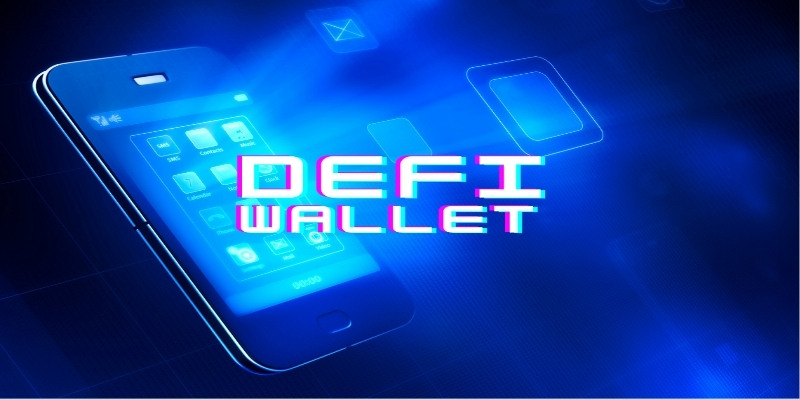
How to choose the right DeFi Wallet?
Choosing the right DeFi wallet is a crucial decision that affects your experience when engaging in decentralized financial transactions. Here are the key factors to consider when selecting a DeFi wallet:
Security is the top priority: Security is the primary concern when using a DeFi wallet. Since you are the sole custodian of your private keys, protecting your wallet from cyberattacks, malware, and scams is essential. Ensure that the wallet you choose offers strong security features such as data encryption, two-factor authentication (2FA), and support for cold wallets for those who want to secure their assets long-term.
Compatibility with DeFi protocols: A good DeFi wallet should be compatible with multiple DeFi protocols and platforms. This enables you to easily participate in activities such as lending, staking, yield farming, and trading on decentralized exchanges (DEXs). The more blockchains and platforms a wallet supports, the more options and opportunities you have to maximize your DeFi earnings.
Ease of use and user-friendly interface: For beginners entering the DeFi space, ease of use is an important factor. A wallet with a simple, intuitive interface and support for popular features will help you quickly get familiar with basic operations without difficulties.
Transaction fees and additional features: Different DeFi wallets come with varying transaction fees, so it’s essential to choose a wallet that offers the lowest fees while still providing the necessary functionalities. Additionally, some wallets support extra features such as staking and built-in token swapping, allowing you to earn profits without leaving the wallet.
Reputation and customer support: The reputation of the DeFi wallet provider is a crucial factor that should not be overlooked. Before selecting a wallet, research community reviews and the level of customer support provided. Make sure the wallet you choose offers efficient customer service and quick responses in case any issues arise.
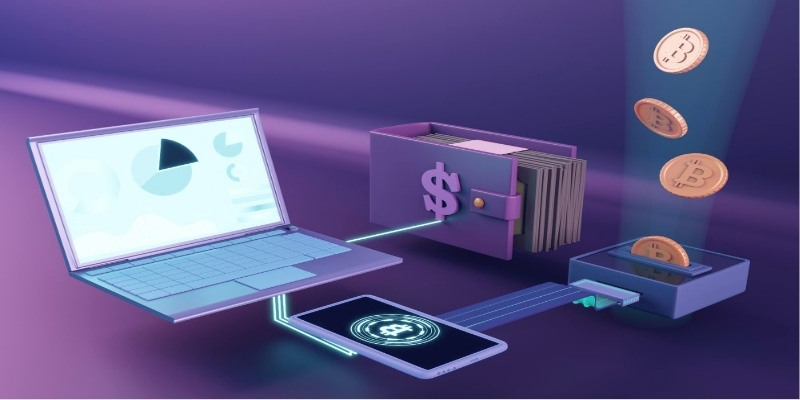
Popular DeFi Wallets and their features
To help you choose the right DeFi wallet, here are some of the most popular DeFi wallets available today:
MetaMask
MetaMask is one of the most widely used and user-friendly DeFi wallets. It supports the Ethereum network and ERC-20 tokens, allowing users to interact with DeFi applications on Ethereum and Binance Smart Chain (BSC). MetaMask is a software wallet available as a browser extension for Chrome and Firefox.
Key features
Multi-chain support (Ethereum, Binance Smart Chain, Polygon).
Quick token swap functionality.
Easy integration with DeFi DApps.
Trust Wallet
Trust Wallet is a multi-platform DeFi wallet acquired by Binance. It supports over 160,000 digital assets and hundreds of different blockchains, including Ethereum, Binance Smart Chain, and Solana.
Key features
Supports more than 160,000 assets and multiple blockchains.
Provides staking services for various cryptocurrencies.
Allows users to buy and swap tokens directly within the wallet.
Coinbase Wallet
Coinbase Wallet is the official wallet from the Coinbase exchange, designed to be compatible with DeFi protocols and to store a variety of cryptocurrencies. This wallet also supports essential DeFi services such as staking and token swapping.
Key features
Seamless integration with the Coinbase exchange.
Supports multiple cryptocurrencies and DeFi protocols.
User-friendly interface.
Hardware Wallets (Ledger, Trezor)
For users who prioritize security, hardware wallets like Ledger and Trezor are the best options. These wallets store private keys offline, significantly reducing the risk of hacking.
Key features
High security due to offline private key storage.
Ideal for long-term asset protection.
Compatible with multiple DeFi platforms and protocols.
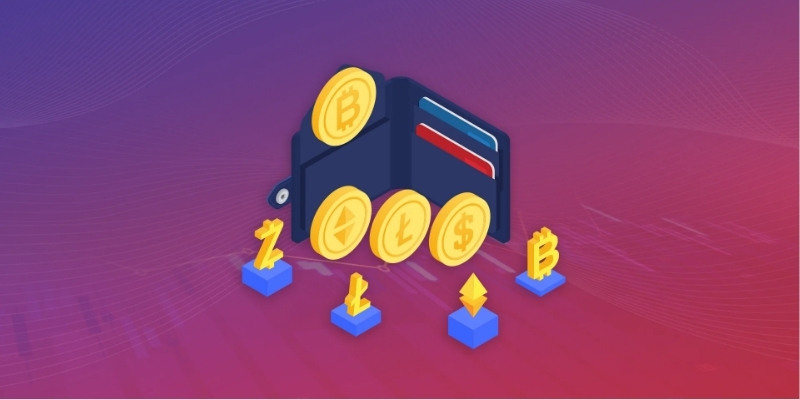
Guide to using a DeFi Wallet
Below is a step-by-step guide on how to use a DeFi wallet:
Step 1: Creating a DeFi Wallet
The first step is to create a DeFi wallet. Here are the basic steps for setting up MetaMask:
Install MetaMask: Visit the official MetaMask website and download the extension for Chrome, Firefox, or the mobile app.
Create a new wallet: After installation, open MetaMask and select “Create a New Wallet”. You will be prompted to set a password for your wallet.
Store your Seed Phrase: MetaMask will provide you with a Seed Phrase (a recovery phrase). This is a set of words that must be stored securely. No one else should have access to this phrase. If you lose your Seed Phrase, you won’t be able to recover your wallet.
Step 2: Depositing funds into your DeFi Wallet
Once your wallet is set up, you need to deposit funds to participate in DeFi activities. You can transfer funds from another wallet or a crypto exchange.
Choose an asset: In MetaMask, select the asset you want to deposit (e.g., Ethereum, Binance Coin, or ERC-20 tokens).
Copy your wallet address: Your MetaMask wallet has a unique address. Simply copy this address and use it to send assets from another wallet or an exchange.
Confirm the transaction: Once you send the assets, you will receive a notification in MetaMask when the transaction is confirmed on the blockchain.
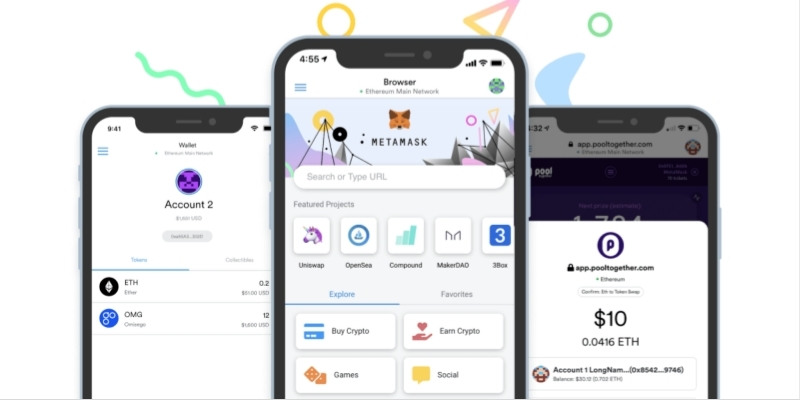
Step 3: Sending and receiving funds with a DeFi Wallet
DeFi wallets allow you to send and receive funds directly without intermediaries like banks.
Sending funds: To send funds from MetaMask, enter the recipient’s wallet address, select the asset (token), and specify the amount. Confirm the transaction and pay the gas fee (transaction fee) on the blockchain.
Receiving funds: To receive funds, simply share your wallet address with the sender. Once the transaction is confirmed, the assets will appear in your wallet.
Step 4: Participating in DeFi activities
DeFi wallets enable you to engage in various decentralized financial activities such as staking, lending, and yield farming. Here’s how you can participate:
Staking: To stake your assets, transfer them to a platform that supports staking (e.g., Aave, Yearn Finance, Uniswap). This allows you to earn interest on your assets without selling them.
Lending and borrowing: Platforms like Compound or Aave allow you to lend your crypto to earn interest or borrow funds by using your assets as collateral.
Token swaps: DeFi wallets like MetaMask enable token swaps on decentralized exchanges (DEXs). Simply select the tokens you want to swap, and MetaMask will connect you to DEXs like Uniswap or Sushiswap to complete the transaction.
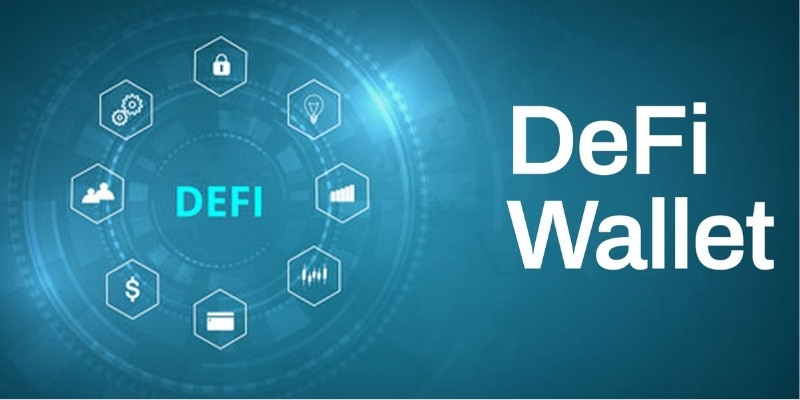
“What is a DeFi wallet, and how do you choose the right one?” is a crucial question when entering the decentralized finance world. Choosing the right DeFi wallet helps you optimize transactions and secure your assets. Key factors to consider include security, compatibility with DeFi, transaction fees, and customer support. By carefully researching and selecting a trusted wallet, you can safeguard your assets and maximize profits in DeFi.
Stay tuned to Financial Insight Daily for the latest tech news every day!
